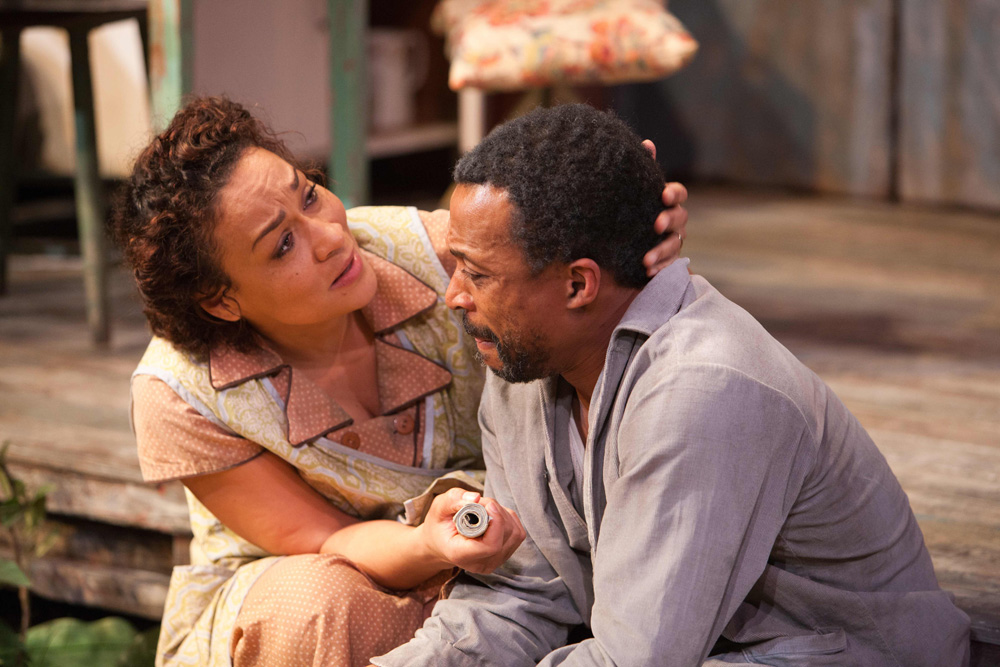Moon on a Rainbow Shawl transports us to 1950s Trinidad where, under a yellow moon, trolley driver Ephraim dreams of escape while his young neighbour, the bright Esther, is aglow with the prospect of winning a scholarship and making her parents proud.
But these dreams aren’t easily obtained and the hot, ramshackle yard in which they live, love, scream and sing, threatens to hold on to them, keeping them at their mundane routines, observed closely by their neighbours.
An exquisite set, beautifully lit, together with the richly patterned costumes coloured with rose reds, peaches and sea-bright turquoise evoke the fussy, tropical heat, where there’s poetry even in Mrs Adam’s pot-washing. Played by Martina Laird, her character provides the emotional core to the play, just as she serves as mother to the whole neighbourhood; comforting vulnerable Rosa, appealing to Ephriam to stay and fulfil his duties, and pushing her good-for-nothing husband to apply for a new house so that Esther, their daughter, might have the chance of a better life.
Still, we learn little of her own hopes and dreams, and other characters remain fairly uncomplicated and a little distant, failing to draw me fully into their hearts and minds. The obviousness of Bethan Mary-James’ character, loud, local tart Mavis, however, is her strongest suit. All red lips, hips and swagger, she delights in making trouble and observing the crises of those around her, and her brassy entrance as she flaunts a diamond ring is pure entertainment – a light relief from the desperation elsewhere.
The drama comes to a head with the falling of the rain as the clouds finally break, and Laird gives another stunning performance as she tries to hold the pieces of her life and those around her together.
There’s more than a whiff of Tennessee Williams in the play’s sultry, oppressive atmosphere and the shabby, raffish charm of the yard, where people go about their business, hollering from porches, troubled by hope and impatient with life under the heavy, tropical sky. The lack of one central character keeps us at a slight distance; I’d have been interested to see the play through Esther’s eyes, whose story which we’re set up to invest in tails off somewhat in act two.
There’s no doubt, however, that this is a deep, intelligent play, in which all life exists.

